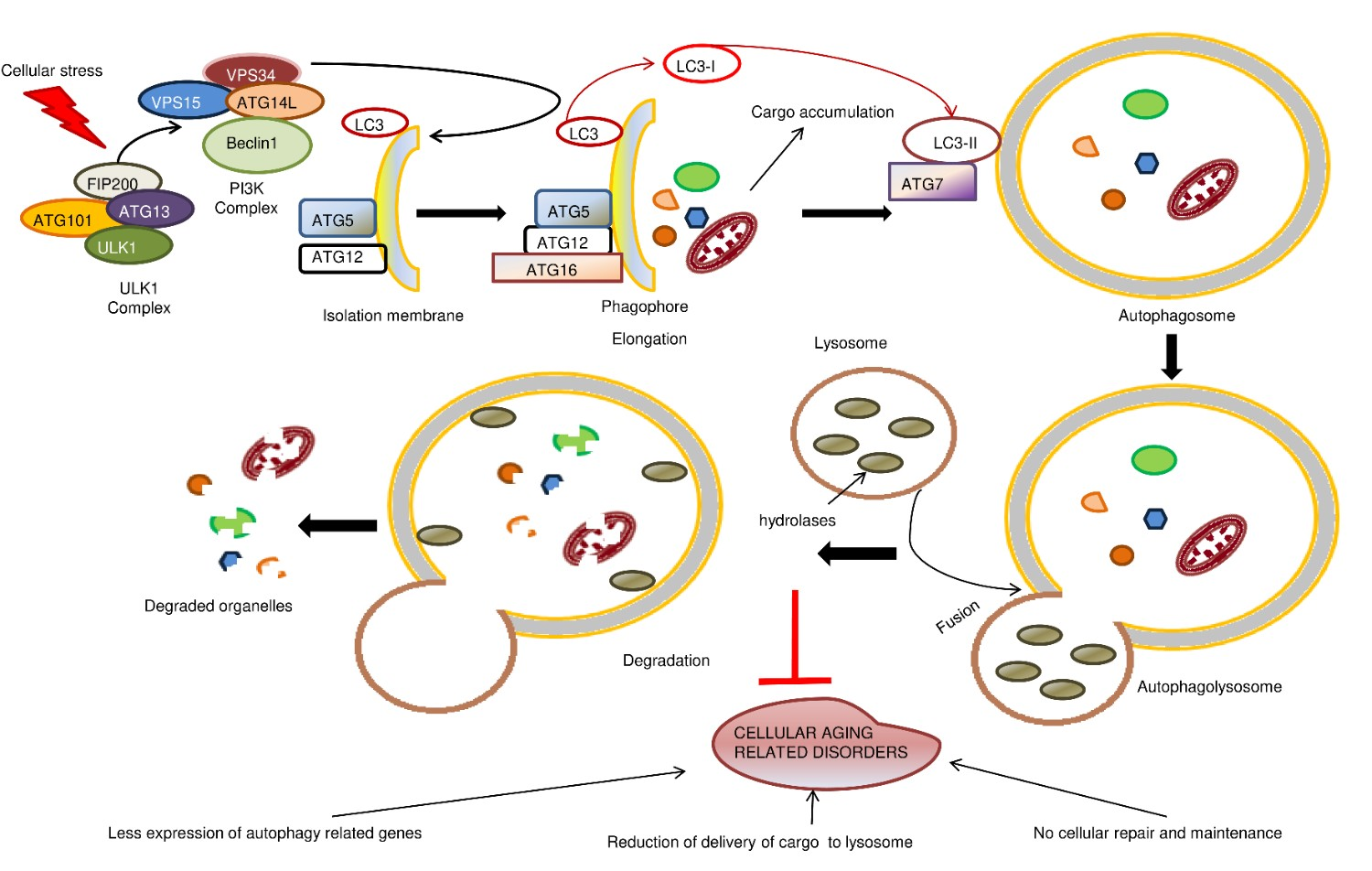Relating aging and autophagy
a new perspective towards the welfare of human health
DOI:
https://doi.org/10.17179/excli2023-6300Keywords:
autophagy, aging, life span, misfolded proteinAbstract
The most common factor that contributes to aging is the loss of proteostasis, resulting in an excess amount of non-functional/damaged proteins. These proteins lead to various age-associated phenotypes such as cellular senescence and dysfunction in the nutrient-sensing pathways. Despite the various factors that can contribute to aging, it is still a process that can be changed. According to recent advances in the field of biology, the ability to alter the pathways that are involved in aging can improve the lifespan of a person. Autophagy is a process that helps in preserving survival during stressful situations, such as starvation. It is a common component of various anti-aging interventions, including those that target the insulin/IGF-1 and rapamycin signaling pathways. It has been shown that altered autophagy is a common feature of old age and its impaired regulation could have significant effects on the aging process. This review aims to look into the role of autophagy in aging and how it can be used to improve one's health.

Downloads
Published
How to Cite
License
Copyright (c) 2023 Sougata Ghosh Chowdhury, Rachayeeta Ray, Parimal Karmakar

This work is licensed under a Creative Commons Attribution 4.0 International License.
Authors who publish in this journal agree to the following terms:
- The authors keep the copyright and grant the journal the right of first publication under the terms of the Creative Commons Attribution license, CC BY 4.0. This licencse permits unrestricted use, distribution and reproduction in any medium, provided that the original work is properly cited.
- The use of general descriptive names, trade names, trademarks, and so forth in this publication, even if not specifically identified, does not imply that these names are not protected by the relevant laws and regulations.
- Because the advice and information in this journal are believed to be true and accurate at the time of publication, neither the authors, the editors, nor the publisher accept any legal responsibility for any errors or omissions presented in the publication. The publisher makes no guarantee, express or implied, with respect to the material contained herein.
- The authors can enter into additional contracts for the non-exclusive distribution of the journal's published version by citing the initial publication in this journal (e.g. publishing in an institutional repository or in a book).





